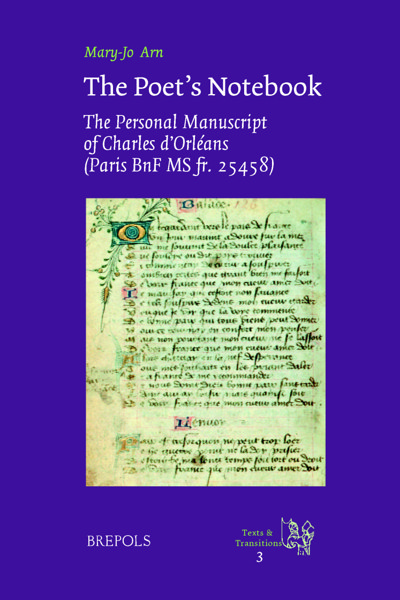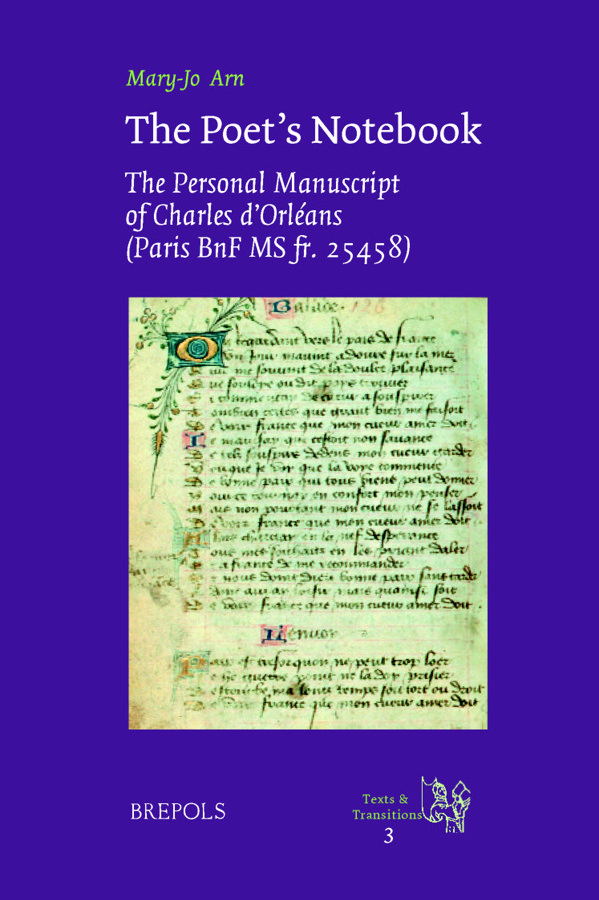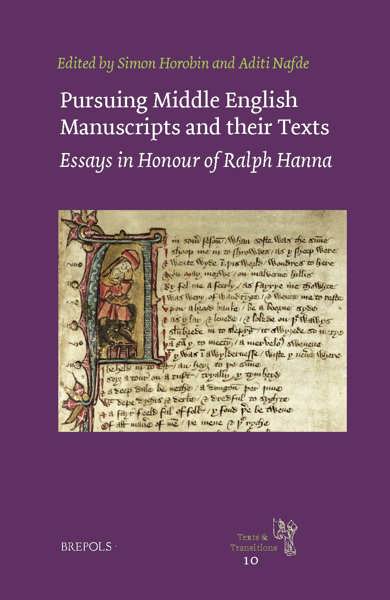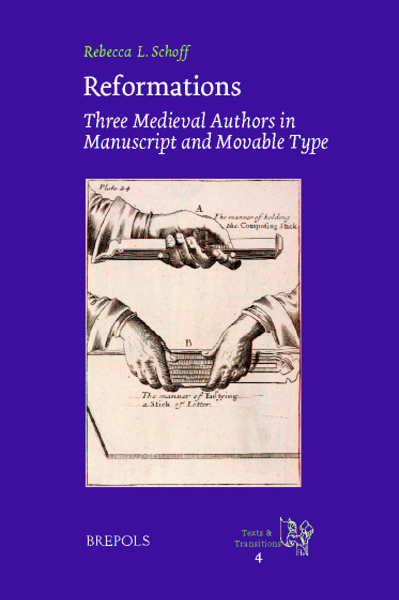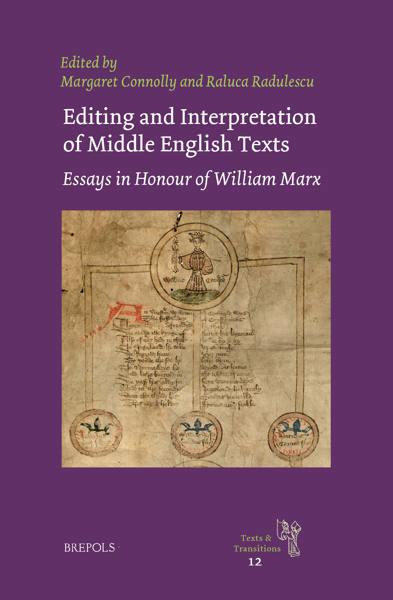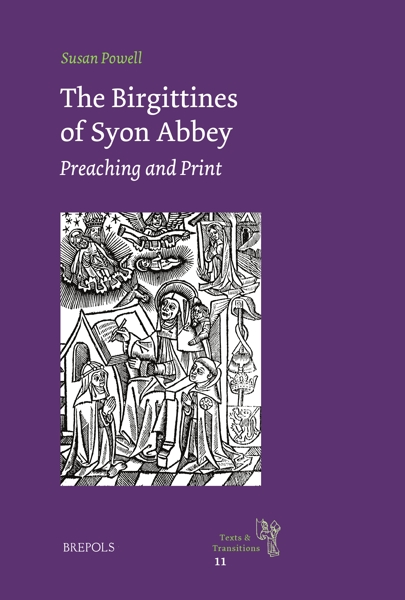
The Poet's Notebook
The Personal Manuscript of Charles d'Orléans (Paris, BnF MS fr. 25458)
Mary-Jo Arn
- Pages: 202 p.
- Size:160 x 240 mm
- Illustrations:30 b/w, 1 col., 8 tables b/w.
- Language(s):English, French
- Publication Year:2009
- € 85,00 EXCL. VAT RETAIL PRICE
- ISBN: 978-2-503-52070-4
- Hardback
- Available
- € 85,00 EXCL. VAT RETAIL PRICE
- ISBN: 978-2-503-56200-1
- E-book
- Available
"Arn makes a solid contribution not only to late-medieval studies in general and Auréliens in particular, but also to all scholars who wish to take on the daunting task of codicological studies and their implications for literary criticism."
(K. Casebier, in Philological Quarterly 88/3, 2009, p. 337-340)
"[...] outstanding study, remarkable for its painstaking detail, its methodological precision, and the new insights offered into the poet's thinking about his poetry as a collection."
(H. Swift, in Medium Aevum LXXIX, 2010, p. 148-149)
"Arn need not be so modest [...]: her endeavor is excellent in its clarity, depth, and detail, and a highly entertaining read. Generously, she provides ample material here for future scholars to build upon."
(Emma Cayley, in Speculum 85/3, July 2010, p. 632)
"(...) thorough codicological investigation of BnF MS fr. 25458 has long been needed. Mary-Jo Arn triumphantly fills this gap with an invaluable study that will benefit literary historians and textual scholars alike. (...) It offers important insights into fifteenth-century book culture. In a broad sense, it is a major work of literary scholarship in its own right. Finally, it is a powerful statement of the fascination and the value of codicology." (A. Armstrong, in: The Medieval Review, 09.09.14)
